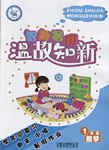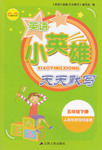题目内容
Let's face it-English is a crazy language. There is no egg in eggplant (茄子) nor ham in hamburger; neither apple nor pine in pineapple(菠萝). English muffins (松饼) weren't invented in England nor French fries in France. Sweetmeats are candies while sweetbreads, which aren't sweet, are meat.
We take English for granted. But if we explore its paradoxes (似是而非的说法),we find that quicksand(流沙) can work slowly, boxing rings are square and a guinea pig is neither from Guinea nor is it a pig.
If teachers taught, why didn't preachers "praught"? If a vegetarian eats vegetables, what does a humanitarian eat?
How can a slim chance and a fat chance be the same, while a wise man and a wise guy are opposites? How can overlook and oversee be opposites, while quite a lot and quite a few are alike? How can a person be "pretty ugly"?
You will be very surprised at the unique lunacy(荒谬) of a language in which your house can burn up as it burns down, in which you fill in a form by filling it out and in which an alarm clock goes off by going on. Why is a "crazy man" an insult(侮辱), while to insert a comma and say "crazy, man" is a compliment (as when clapping for a Jazz performance).
English was invented by people, not computers, and it reflects the creativity of the human race (which, of course, isn't a race at all). That is why, when the stars are out, they are visible, but when the lights are out, they are invisible. And why, when I wind up my watch, I start it, but when I wind up this essay, I end it.
According to the passage, which of the following statements is TRUE?
A. A wise man is similar in meaning to a wise guy.
B. "An alarm clock goes on" and"An alarm clock goes off" are opposite.
C. Boxing rings are square rather than round.
D. Sweetmeats are sweet meat while sweetbreads are not sweet at all.
Which of the following pairs contains expressions that are opposite in meaning?
A. "A fat chance"and "a slim chance".
B. "To fill in a form"and "to fill out a form".
C. "Crazy man" and "crazy, man".
D. "Quite a lot" and "quite a few".
Which of the following statements about the English language is NOT true according to the passage?
A. It is a crazy language.
B. It reflects the creativity of the human race.
C. It was invented by the British people.
D. It can be quite irregular.
【小题1】C
【小题2】C
【小题3】C
解析:
【小题1】第二段即本题答案出处。按字面意思,ring意为"圆圈;圆环";而boxing rings(拳击场) 却是方形的。。
【小题2】由第四段最后一句可知,称一个人是crazy man,是对这个人的侮辱;如果在crazy和man之间加上逗号,则是表"赞扬"。
【小题3】由第五段第一句可知,"英语是人发明的,它表现了人类的创造力。"括号中又进一步解释了human race(意为"人类")根本不是指某一"种族"。

 智趣暑假温故知新系列答案
智趣暑假温故知新系列答案 英语小英雄天天默写系列答案
英语小英雄天天默写系列答案 暑假作业安徽少年儿童出版社系列答案
暑假作业安徽少年儿童出版社系列答案Why does night fall but never break and day break but never fall?
Why are people who ride motorcycles called bikers and people who ride bikes called cyclists?
In what other language do people drive in a parkway and park in a driveway?
In what other language do they call the third hand on the clock the second hand?
Let’s face it: English is a crazy language. There is no egg in an eggplant, neither pine nor apple in a pineapple and no ham in a hamburger. Sweet-meats are candy, while sweetbreads, which aren’t sweet, are meat.
We take English for granted. But when we explore its paradoxes (探讨它的矛盾), we find that quicksand can work slowly, boxing rings are square, public bathrooms have no baths in them.
And why is it that a writer writes, but fingers don’t fing, grocers don’t groce, and hammers don’t ham? If the plural of tooth is teeth, shouldn’t the plural of booth be beeth? One goose, two geese — so one moose, two meese?
How can a slim chance and a fat chance be the same, while a wise man and a wise guy are opposites? How can overlook and oversee be opposites, while quite a lot and quite a few are alike? How can the weather be hot as hell one day and cold as hell the next?
English was invented by people, not computers, and it reflects the creativity of human beings. That’s why, when stars are out, they are visible; but when the lights are out, they are invisible. And why, when I wind up my watch, I start it; but when I wind up this essay, I end it.
【小题1】 According to the passage ______.
| A.sweet-meats and sweetbreads are different things |
| B.there should be egg in an eggplant |
| C.pineapples are the apples on the pine tree |
| D.boxing rings should be round |
| A.A wise man and a wise guy. |
| B.Overlook and oversee. |
| C.Quite a lot and quite a few. |
| D.Hot as hell and cold as hell. |
| A.blow | B.roll up | C.get hurt | D.finish |
| A.clever | B.crazy | C.lazy | D.dull |
完型填空(共20小题;每小题1.5分,满分30分)
阅读下面短文,掌握其大意,然后从36—55各题所给的四个选项(A、B、C和D)中,选出最佳选项,并在答题卡上涂黑。
As a physician who travels quite a lot, I spend a lot of time on planes listening for that dreaded “Is there a doctor on board?” announcement. I’ve been 36 only once-for a woman who had merely fainted. But the 37 made me quite curious about how 38 this kind of thing happens. I wondered what I would do if 39 with a real mid-air medical emergency-without access 40 a hospital staff and the usual emergency equipment. So 41 the New England Journal of Medicine last week 42 a study about in-flight medical events, I 43 it with interest.
The study estimated that there are a(n) 44 of 30 in-flight medical emergencies on U.S. flights every day. Most of them are not 45 ; fainting and dizziness are the most frequent complaints. 46 13% of them-roughly four a day-are serious enough to 47 a pilot to change course. The most common of the serious emergencies 48 heart trouble, strokes, and difficult breathing.
Let’s face it: plane rides are 49 . For starters, cabin pressures at high altitudes are set at roughly 50 they would be if you lived at 5,000 to 8,000 feet above sea level. Most people can tolerate these pressures pretty 51 , but passengers with heart disease 52 experience chest pains as a result of the reduced amount of oxygen flowing through their blood. 53 common in-flight problem is deep venous thrombosis(血栓)-the so-called economy class syndrome(综合症). 54 happens, don’t panic. Things are getting better on the in-flight emergency front. Thanks to more recent legislation(立法), flights with at 55 one attendant are starting to install emergency medical equipments to treat heart attacks.
36. A. called B. informed C. addressed D. surveyed
37. A. accident B. incident C. condition D. disaster
38. A. soon B. many C. long D. often
|
39. A. met B. identified C. treated D. provided
40. A. for B. by C. to D. through
41. A. before B. when C. since D. while
42. A. collected B. discovered C. conducted D. published
43. A. consulted B. read C. consumed D. considered
44. A. amount B. sum C. average D. number
45. A. significant B. common C. heavy D. serious
46. A. For B. But C. And D. So
47. A. require B. engage C. inspire D. command
48. A. include B. imply C. confine D. contain
49. A. enjoyable B. favorable C. peaceful D. stressful
50. A. who B. which C. what D. that
51. A. mentally B. easily C. neatly D. naturally
52. A. ought to B. used to C. may D. need
53. A. Any B. Other C. One D. Another
54. A. Whatever B. Whenever C. Whichever D. Wherever
55. A. most B. least C. worst D. best